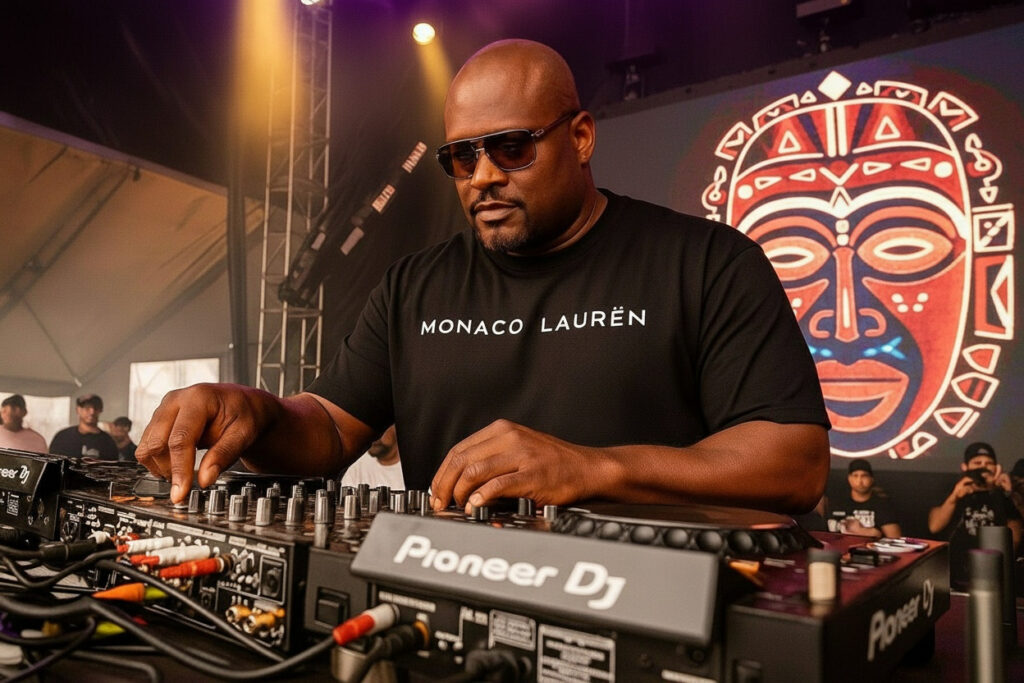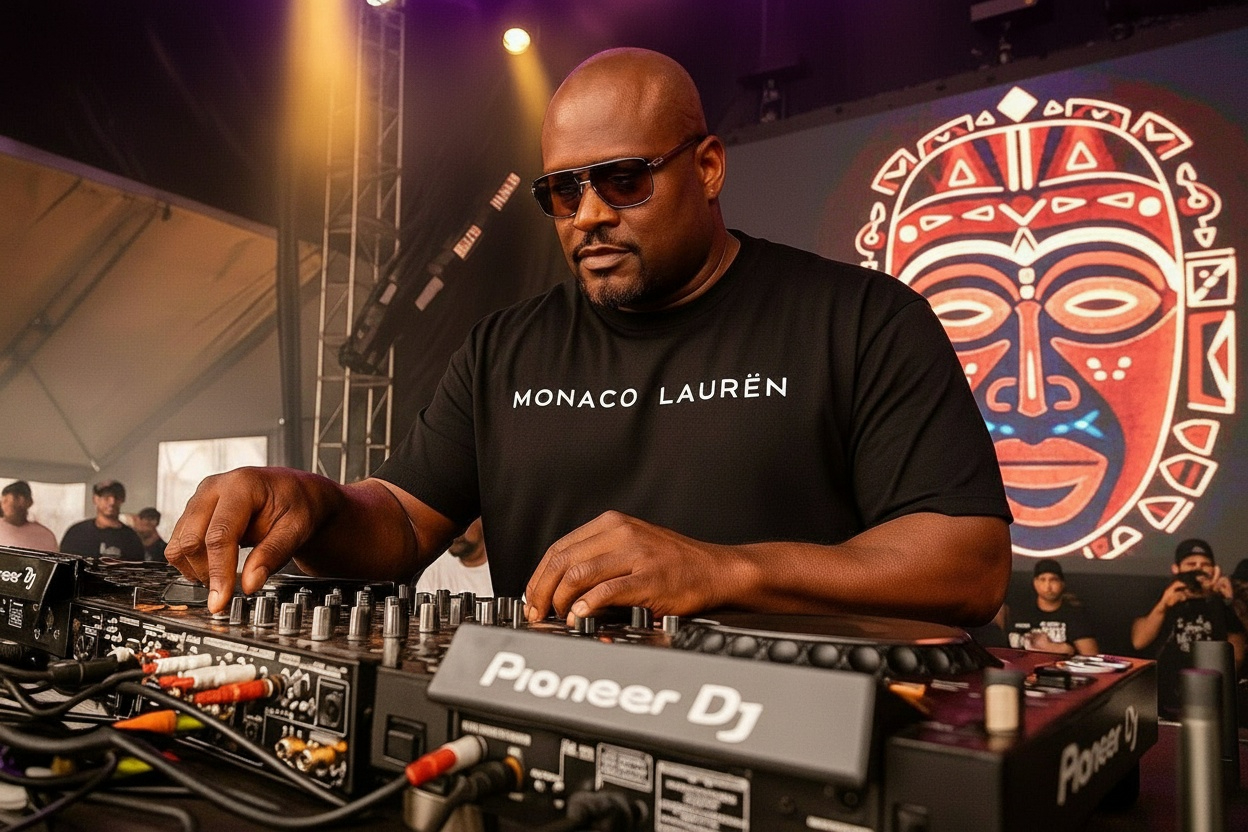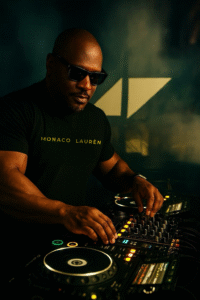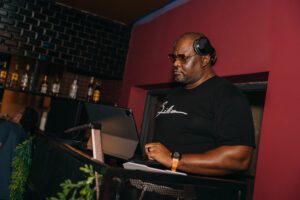Introduction: More Than a Beat, It’s a Feeling
If you’ve ever stepped into a space where the air vibrates with rhythm, where every drumbeat feels alive, you’ve already felt the essence of Afrohouse music.
But what is Afrohouse music, really?
At its core, Afrohouse is the sound of connection, where African rhythm meets modern electronic production. It’s tribal yet sophisticated, ancient yet futuristic. It’s the music that invites you not just to dance, but to feel.
And as the world rediscovers rhythm as a form of healing and unity, artists like Monaco Lauren are helping Afrohouse evolve, transforming it into an experience that transcends genres, borders, and expectations.
The Origins: Where Afrohouse Music Began
To understand what is Afrohouse music, you have to go back, to the early 2000s in South Africa.
Born from Deep House, Kwaito, and African tribal rhythms, Afrohouse emerged as a more soulful, spiritual version of house music. It carried the DNA of Africa’s drums but infused it with the sophistication of global electronic sound.
DJs and producers like Black Coffee, Culoe De Song, and Da Capo pioneered the genre, creating deep, meditative tracks that resonated in both township clubs and international stages.
Soon, the sound spread, to Lisbon, Ibiza, London, and Dubai, carried by the African diaspora and embraced by music lovers seeking something more meaningful.
The Sound: What Makes Afrohouse Music Unique
So what is Afrohouse music in sound? It’s a combination of rhythm, atmosphere, and emotion.
Here’s what defines it:
- Percussion-Driven Beats: Afrohouse revolves around tribal drums, congas, and shakers, creating an organic, heartbeat-like rhythm.
- Soulful Chords & Vocals: Melodic piano lines and chant-like vocals often express spirituality, ancestry, or emotional release.
- Steady Tempos: Typically between 120–125 BPM, allowing listeners to move with both calm and energy.
- Layered Sound Design: Modern synths and effects meet traditional African percussion, producing a textured, hypnotic soundscape.
Unlike EDM’s intensity or Amapiano’s playful basslines, Afrohouse is immersive, it’s about feeling grounded, centered, and alive.
The Culture: Dance as Ritual, Rhythm as Connection
To know what is Afrohouse music; it’s more than a music genre, it’s a culture.
- In Movement: Afrohouse dance is expressive and intentional, fluid steps, grounded hips, and gestures that connect dancer to rhythm.
- In Fashion: The Afrohouse aesthetic blends tribal patterns with modern minimalism, linen, leather, beads, and flow, symbolizing harmony between roots and refinement.
- In Spirit: For many, Afrohouse gatherings feel like ceremonies, where rhythm becomes a form of meditation and community.
This connection between sound and spirit is what gives Afrohouse its enduring power, it’s not just about dancing to the beat; it’s about remembering where the beat comes from.
Monaco Lauren: Redefining What is Afrohouse Music Feels Like
In a world where sound and energy intertwine, Monaco Lauren stands at the forefront of Afrohouse’s next evolution.
As a producer, DJ, and visionary, he blends ancestral drum patterns with healing frequencies and global sophistication. His music is designed not just to entertain — but to elevate.
“Afrohouse isn’t just sound,” Monaco Lauren says. “It’s frequency. It aligns energy and opens space for transformation.”
Through his performances in Dubai, Paris, and Johannesburg, Monaco Lauren has introduced audiences to Afrohouse as both a luxury and a spiritual experience — a place where body, mind, and rhythm become one.
Why Afrohouse Resonates Globally
The reason Afrohouse is spreading across the world is simple: it fulfills a deep human need.
People everywhere are seeking connection — to themselves, to others, to something larger.
Afrohouse delivers that through:
- Healing Energy: The repetitive rhythms help release stress and ground emotion.
- Cultural Unity: Its roots remind listeners of shared African ancestry and universal rhythm.
- Global Accessibility: Afrohouse’s electronic sound bridges cultures and generations — from DJs in Berlin to beach clubs in Zanzibar.
It’s music with depth and direction — and that’s why it’s not just rising, it’s reawakening the world.
The Future of Afrohouse Music
The next chapter of Afrohouse is about fusion and purpose.
Expect to see more collaborations between Afrohouse and genres like Amapiano, Afrobeats, and Latin house, creating new global sounds while staying true to Afrohouse’s essence.
Visionaries like Monaco Lauren are shaping this future — blending luxury aesthetics with cultural integrity, showing that music can be both beautiful and meaningful.
Conclusion: The Answer to “What Is Afrohouse Music?”
So, what is Afrohouse music?
It’s rhythm with intention.
It’s dance as meditation.
It’s culture expressed through sound.
Afrohouse is the heartbeat of a new generation — one that values connection, creativity, and consciousness.
And through artists like Monaco Lauren, it’s more than a genre — it’s a movement of sound, soul, and style.





[…] these genres form the rhythm of a new world — Afrohouse heals, Amapiano unites, and Indo House […]